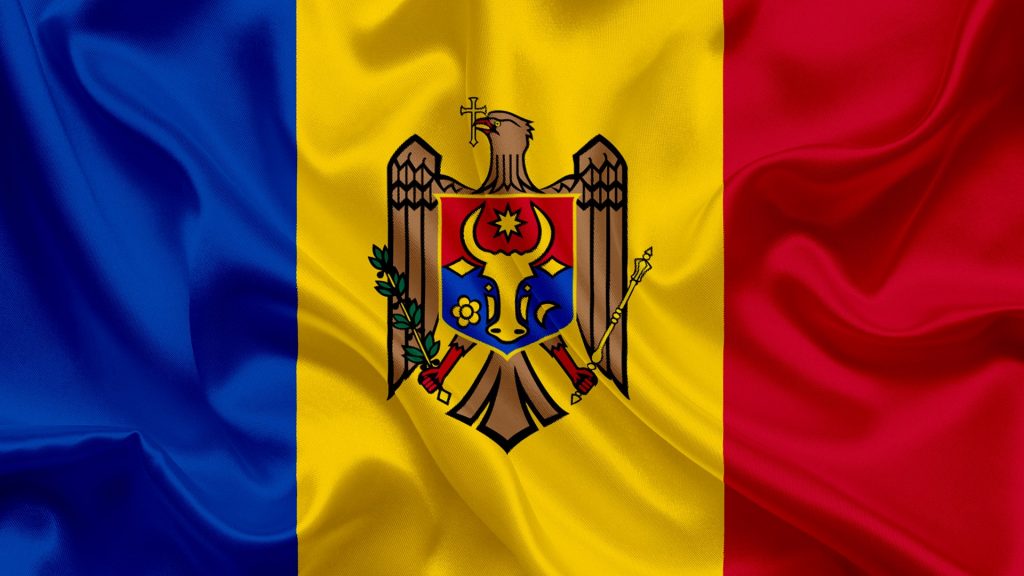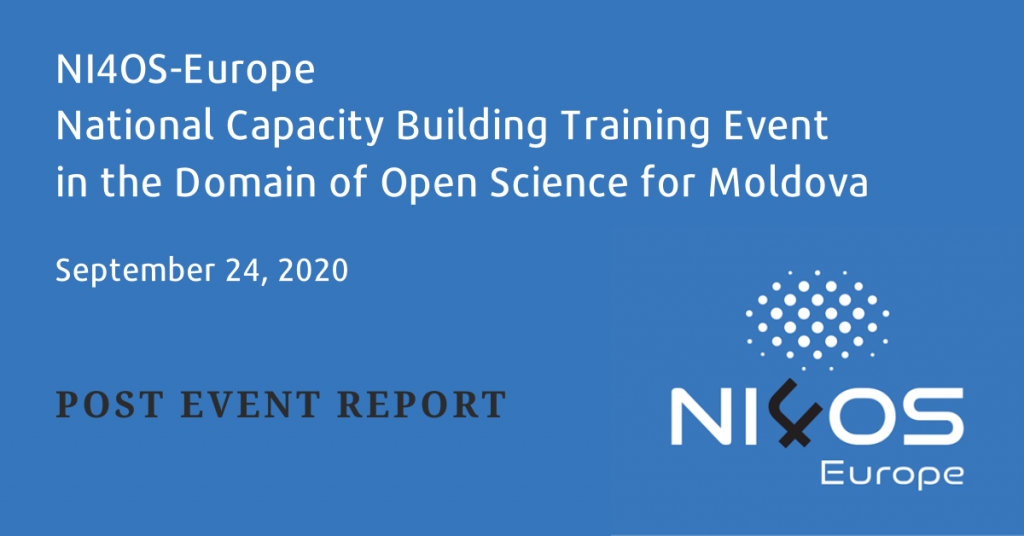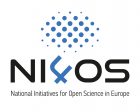
103 persons registered, and 68 of them attended online the first NI4OS-Europe National Capacity Building Training Event in the Domain of Open Science for Moldova held on September 24, 2020 in order to consolidate their knowledge on Open Science related topics. The event was organized by NI4OS-Europe partner Research and Educational Networking Association of Moldova (RENAM).
We are proud to announce that NI4OS-Europe Training Platform helped to make this happen, because of current pandemic restrictions. As all slides and video recording are available – the stakeholders can view them in any suitable time after the event.
Welcome and introduction

The event started with a welcome speech from the President of the Academy of Sciences of Moldova, Acad., Prof. Ion Tiginyanu, who emphasized the importance of Open Science as a new vision on how to develop science and implement scientific results, with a final goal – to have a positive impact of science on society and economy of countries.
After that, Dr. Viorica Boaghi, Deputy General Director of the National Agency for Research and Development, gave a short introduction about EOSC history and participation of Moldovan representatives in the EOSC Working Groups, and paid special attention to NI4OS-Europe project in integration of national initiatives into the EOSC infrastructure.
Presentations
The first presentation was given by Dr. Peter Bogatencov, Chairman of the RENAM Management Board, who introduced the objectives of NI4OS-Europe project, its mission and contribution to EOSC federation, project structure and regional context. As well he gave some insights about Open Science Landscape Survey results for Moldova, realized within the project in October-December 2019.
In the second presentation Dr. Habil., Prof. Nelly Țurcan of Moldova State University, national EOSC promoter, talked about the state of Open Science in the Republic of Moldova, current problems in this domain and perspectives for the nearest future, making a comprehensive analysis of policies, initiatives and actions at both institutional and national levels. In addition, she gave an overview of the FAIR principles, resources and recommendations how to implement FAIR in practice.
In the third presentation Nicolaie Constantinescu of Kosson (Romania) highlighted the importance of stewardship, capabilities, competences and skills, needed from the EOSC perspective, and setting up training programmes in order to support future national Open Science policies. He encouraged attendees to familiarize with sets of metadata specific for scientific domains, and become good at this.
Lastly, Dr. Iryna Kuchma, member of EIFL and OpenAIRE, provided information about Open Science policies on examples of European countries (Belgium, Denmark, Ireland, the Netherlands, Romania, Serbia, Slovakia, Slovenia, Finland, Czech Republic) focusing on good practices. She presented OpenAIRE services – all free of charge – designed for all stakeholders to monitor, accelerate and support scientific research.
Representatives of Moldovan universities and research institutions, librarians and policy makers attended this three-and-a-half-hour online event. Presentations triggered some debate among the participants, who showed great interest for the continuation of the discussion regarding Open Science and EOSC.
